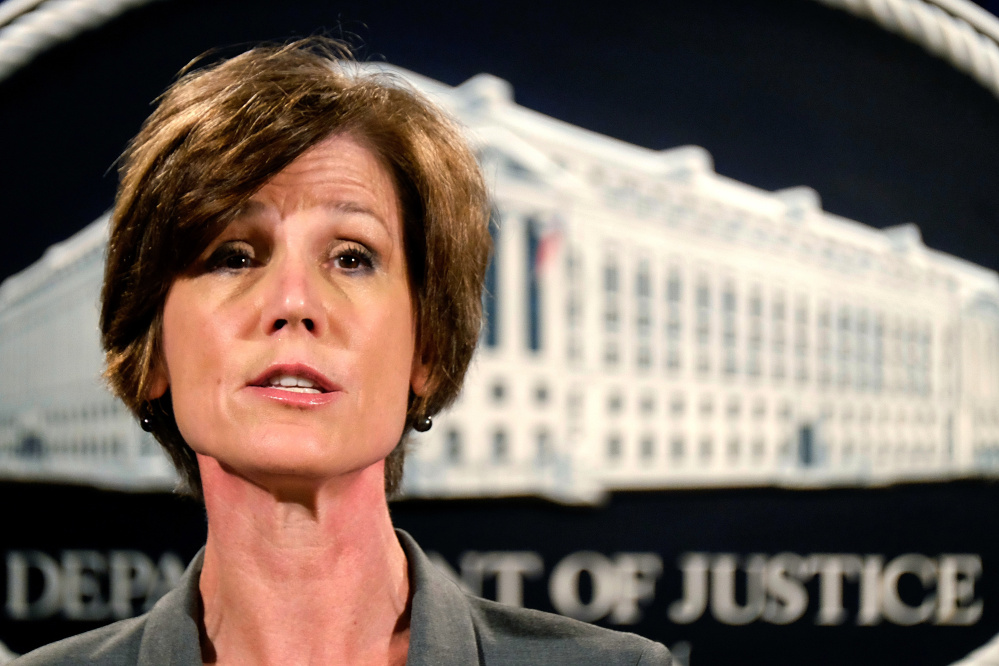WASHINGTON — An Obama administration Justice Department official will testify to Congress on Monday about the most explosive contacts to emerge so far between President Trump’s former top aides and senior Russian officials.
Sally Yates, deputy attorney general under President Barack Obama, is expected to disclose details to a Senate Judiciary Committee panel about her warnings to White House officials in January that Trump’s national security adviser, retired Army Lt. Gen. Michael Flynn, misled Vice President Mike Pence and other officials about his conversations with Russian Ambassador Sergey Kislyak.
Flynn was fired 18 days after Yates went to the White House, and only after news stories revealed the existence of a transcript of Flynn’s telephone conversation with Kislyak, which was recorded as part of routine U.S. intelligence monitoring of foreign officials’ communications. Yates, a former U.S. attorney who became deputy attorney general in 2015, took over the Justice Department as acting attorney general after Trump was inaugurated Jan. 20 while he prepared his own team.
She was fired 10 days later after she announced that under her leadership, the Justice Department would not defend Trump’s executive order seeking to bar travel to the U.S. from select Muslim-majority nations.
James R. Clapper, the director of national intelligence during the Obama administration, is also scheduled to testify at the same hearing.
Lawmakers from both parties are likely to press Yates for details about her warnings to the White House that Flynn’s misrepresentations to Pence, and to the public, about his conversations with Kislyak left him vulnerable to blackmail by Moscow.
FBI Director James Comey recently told a judiciary subcommittee that Yates had spoken to him about her “concerns that Gen. Flynn had been compromised.”
Flynn and Kislyak exchanged phone calls and text messages during the White House transition, and were in touch on Dec. 29, the day the Obama administration levied a range of sanctions against Moscow for meddling in the 2016 election.
After leaks revealed those contacts, Flynn and other Trump administration officials, including Pence, denied Flynn and Kislyak discussed easing sanctions. Doing so might violate the Logan Act, a 1799 law prohibiting private citizens from negotiating with foreign governments.
Send questions/comments to the editors.



Success. Please wait for the page to reload. If the page does not reload within 5 seconds, please refresh the page.
Enter your email and password to access comments.
Hi, to comment on stories you must . This profile is in addition to your subscription and website login.
Already have a commenting profile? .
Invalid username/password.
Please check your email to confirm and complete your registration.
Only subscribers are eligible to post comments. Please subscribe or login first for digital access. Here’s why.
Use the form below to reset your password. When you've submitted your account email, we will send an email with a reset code.